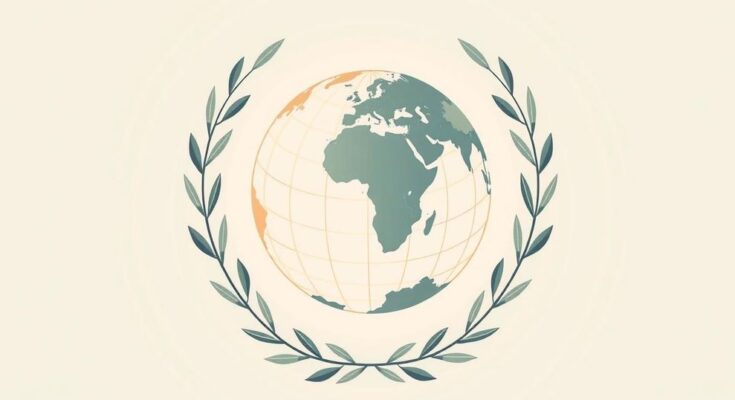In the Horn of Africa, Somaliland, a self-proclaimed independent state, prides itself on its democratic processes and stability amidst regional turmoil. However, the nation faces challenges in gaining international recognition due to significant human rights violations, particularly regarding freedom of religion and the harsh sentencing of LGBTQ+ individuals. These issues could severely hinder Somaliland’s quest for legitimacy in the eyes of Western democracies.
Somaliland’s journey towards independence began in 1991, after Somalia’s government collapsed. The region emphasizes its adherence to statehood criteria defined in the Montevideo Convention, such as a stable population, defined territory, and governance. Despite its efforts to demonstrate these advantages, the international community remains hesitant to grant Somaliland official recognition.
Recent discussions suggest that the incoming Trump administration may recognize Somaliland due to its strategic location near major shipping routes. A 2023 analysis by McPherson-Smith and Jendayi Frazer argues that Somaliland’s case for statehood parallels that of Kosovo, which was accepted by the U.S. The introduction of a recognition bill by Representative Scott Perry further fuels speculation about Somaliland’s diplomatic prospects.
This situation has ignited contention among Somalis, with separatists and unionists divided over international recognition. Unionists assert that Somaliland is an integral part of Somalia, intensifying tensions, particularly after a controversial agreement between Somaliland and Ethiopia. Clans within Somaliland also display varying stances on independence, with the Isaaq clan favoring it, while others remain skeptical.
While there’s hope for recognition, ongoing human rights abuses can pose significant hindrances to Somaliland’s ambitions. Personal accounts of arrests related to freedom of belief and LGBTQ+ persecution highlight the injustices under the previous administration. The plight of individuals arrested for their sexuality and beliefs exemplifies the urgent need for reform in human rights before any recognition can be considered.
The International Bill of Human Rights promotes freedom of belief, demanding that individuals can express and change their faith without fear. However, Somaliland’s legal framework, rooted in sharia law, deprives religious minorities of these rights. Article Five of the Somaliland Constitution enshrines Islam as the sole permitted religion, starkly opposing conversion or the expression of other faiths.
Accurate data on religious minorities in Somaliland is scarce, but it is evident that there is a growing secular population. An estimated 1.2 million Somali atheists are believed to be active on social media, spurred by increasing dissent against traditional beliefs. However, this shift has led to arrests, notably a university lecturer jailed for questioning prayer efficacy in a public forum.
Christians in Somaliland face oppression, with many detained for their faith amid crackdowns from the Muse Bihi administration. Reports suggest a small but resilient Christian community persists despite persecution. My own experience of arrest and imprisonment for promoting Christianity underscores the severity of these violations, particularly in a judicial system that lacks fairness regarding religious conversions.
The government’s prohibition against public practice of religions other than Islam extends to expatriates. Although the Catholic Church briefly reopened in 2017, it was soon shut down due to public dissent. The closure highlighted the challenges faced by non-Muslim communities, raising concerns over the government’s commitment to religious freedom.
Moreover, LGBTQ+ individuals in Somaliland are systematically persecuted under Article 409 of the Somali Penal Code, which prohibits same-sex relationships. There have been mass arrests, with dozens imprisoned due to their identities. The lack of protection for such individuals starkly contrasts the values upheld by Western liberal democracies.
In conclusion, while Somaliland’s quest for international recognition is driven by its achievements in peacebuilding and governance, the underlying human rights violations threaten its legitimacy. The U.S. must weigh its strategic priorities against the need to uphold human rights as crucial to establishing any form of recognition. The newly elected President, Abdirahman Irro, alongside his administration, should prioritize addressing these abuses to foster an inclusive society that respects fundamental rights.
Somaliland seeks international recognition as a stable democracy but faces significant challenges due to human rights violations, specifically related to religion and sexual orientation. Its pursuit of statehood, based on strategic importance, is complicated by internal divisions and concerns over human rights issues, which need addressing for recognition to be feasible.
Somaliland’s path to international recognition is fraught with challenges tied to its human rights record. While its pursuit is commendable amidst regional instability, the violations against religious minorities and LGBTQ+ individuals stand in stark contrast to the ideals of Western democracies. The recognition process must be contingent upon substantial reforms that uphold fundamental human rights to ensure legitimacy and support from the international community.
The article examines the delicate balance between Somaliland’s aspirations for international recognition and its human rights situation. It discusses the region’s claim to independence, its strategic importance, and the internal divisions regarding separatism. Human rights violations, especially concerning freedom of belief and LGBTQ+ rights, are emphasized as significant barriers to gaining legitimacy on the global stage. The article also underscores the complexities of repurposing Somaliland’s image amid ongoing human rights abuses.
Original Source: www.e-ir.info



